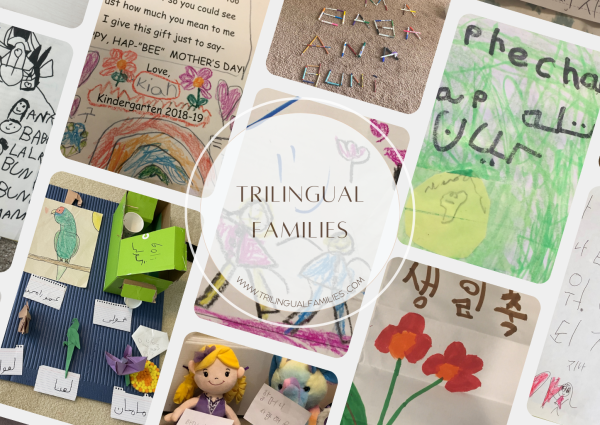
This tips presented here are drawn from the experiences of the participating families in this project.
Tips from Families
Speak Your Home Language: Consistently use your mother tongue with your child. It’s crucial for their language development. Communicate to friends and family that speaking your native language is important for you and your child’s learning. Clarify that it’s not a personal but a necessary step for your child’s bilingual or trilingual growth.
Be Proud and Persistent: Don’t be deterred by adverse reactions or misunderstandings from others. Stick to your language at home, even in social settings like birthday parties. Your child’s exposure to your language is limited and valuable, so make the most of it.
Parent Perspectives: quotes:
“Be firm in your attitude.”
“Keep speaking the mother language.”
“Be persistent and don’t give up.”
Connect with Other Families: Seek out other families who share your language and cultural background. Arrange playdates or group activities where your child can interact with peers who speak the same language.
Create Language-Rich Environments: If possible, enroll your child in classes or activities that involve other children speaking your target language. Look for local or online groups that facilitate language practice and cultural exchange.
“Find out other families who can share language.”
“Build a community.”
“Having other families who speak one of the languages around helps.”
“Surround yourselves with people who normalize this as a part of their lives.”
Utilize Online Materials: If you’re unsure how to teach or reinforce the language, plenty of online resources and materials are available for free. Explore educational websites, apps, and downloadable content to support your child’s language learning.
Engage in Interactive Activities: Get involved in activities like reading stories, playing games, and preparing language-related activities. Rotate these tasks with other family members to make learning fun and engaging.
“Make environment for children to have fun for learning language.”
Commit to Your Language Plan: Consistency is key. Stick to your language goals even when it’s challenging. The more consistent you are, the more natural the language-learning process will become for your child.
Learn Together: If your partner doesn’t speak your language, consider learning it together. This can enhance communication within the family and make it easier to maintain a multilingual environment.
“Make a decision to stick with, be consistent.”
“Learn language together to make it easier to stick with.”
Be Patient and Positive: Remember, raising a trilingual child is a rewarding journey. Embrace the process with positivity and patience. Your investment will benefit your child’s cognitive and cultural development in the long term.
By integrating these strategies into your family life, you’ll create a nurturing environment that supports your child’s multilingual growth and enriches your family’s cultural experience.
“Take your time, children will appreciate all those efforts.”
“It can provide opportunities for your child.”
“Have fun with it. Love it and embrace how that journey goes for you particularly, without comparing yourself to others.”
Incorporate Cultural Traditions
Celebrate holidays, festivals, and traditions tied to the language’s culture. This helps children associate the language with positive and meaningful experiences.
Cook Traditional Meals Together
Engage in preparing dishes from the culture while discussing the ingredients, recipes, and customs in the target language.
“Create an emotional bond about the culture of the language.”
Model Lifelong Learning
Show your child that learning a language is a shared journey. Take on the challenge of improving your own skills in the language, even if it feels difficult. Your effort sets an inspiring example.
Set Small, Achievable Goals
Break language learning into manageable steps for both you and your child. For instance, commit to learning five new words a week together or practicing short daily conversations.
Embrace Mistakes
Show your child that it’s okay to make mistakes while learning. Laughing off errors and trying again teaches resilience and encourages them to take risks in their own language practice.
“Don’t be afraid to challenge yourself, because it can provide opportunities for your child. — It would all fall on parents’ shoulders anyway, if we agree to provide ourselves with a little bit of challenge, maybe it will give our kids more than the challenges.”

Please note this page is being constantly updated.
Contact us at [email protected]
This website was financially supported by HaBilNet, the Harmonious Bilingualism Network.
